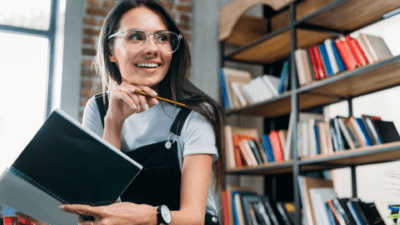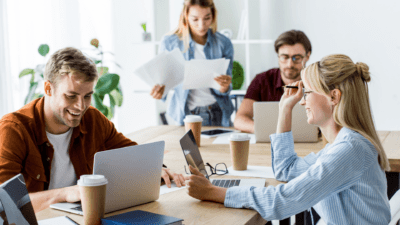Diversity Week 3, 24 – 26 January 2023
Webinarium (w języku angielskim i języku polskim): dr n.med. Anna Czarnocińska – Wykład na temat niepełnosprawności wzroku i profilaktyki chorób oczu.
Webinarium przedstawi podstawowe pojęcia z zakresu niepełnosprawności wzroku oraz dostarczy wiedzy i umiejętności z zakresu profilaktyki związanej ze wzrokiem. W dzisiejszym świecie większość czasu spędzamy przy monitorze komputera, ekranie smartfonu. Czy ma to wpływ na nasz wzrok? Przedstawiamy zasady, które pomagają w dbać o wzrok.
Webinar (in English and Polish): Dr Anna Czarnocinska, M.D. – Lecture on visual impairment and eye disease prevention.
The webinar will introduce the basic concepts of visual impairment and provide knowledge and skills on eye-related prevention. In today’s world, we spend most of our time at a computer monitor, smartphone screen. Does this affect our eyesight? Here are some principles to help you take care of your eyesight.
Warsztaty fotograficzne pt. Opowiedzieć zdjęcie (w języku angielskim i języku polskim): prezes Wielkopolskiego Stowarzyszenia Niewidomych Pan Paweł Kamza, który jest reżyserem teatralnym, dramaturgiem, scenografem i fotografikiem.
Warsztaty będą przygotowaniem studentów do konkursu fotograficznego „FOTO OKO. Dlaczego warto, należy i trzeba dbać o wzrok”. Studenci będą wykonywać zdjęcia (smartfonem) oraz zapoznają się ze techniką audiodeskrypcji udostępniającą kulturę i sztukę osobom niewidomym i słabowidzącym.
Photography workshop entitled Telling the Story of a Photo (in English and Polish): President of the Wielkopolska Association of the Blind Mr Paweł Kamza, who is a theatre director, playwright, set designer and photographer.
The workshop will prepare students for the photographic competition „FOTO OKO. Why it is worth, should and must be taken care of your eyesight’. Students will take photographs (with a smartphone) and learn about the technique of audiodescription to make culture and art accessible to blind and partially sighted people.
Szkolenie dla wykładowców „Jak prowadzić zajęcia ze studentami z niepełnosprawnością wzroku”: Jerzy Łączny – Wielkopolskie Stowarzyszenie Niewidomych, dziennikarz Radia Poznań, absolwent UEP.
Szkolenie umożliwi zapoznanie się z problematyką prowadzenia zajęć ze studentami niedowidzącymi i niewidomymi. Prowadzący omówi sposoby prowadzenia zajęć na przykładzie własnych doświadczeń edukacyjnych, jako osoba niewidoma.
Training for lecturers 'How to teach visually impaired students’: Jerzy Łączny – Wielkopolska Association of the Blind, journalist of Radio Poznań, graduate of PUEB.
The training will provide an insight into the problems of conducting classes with visually impaired and blind students. The presenter will discuss ways of conducting classes on the example of his own educational experience as a blind person.
Uwaga, (NIE)pełnosprawny pracownik! Osoby z niepełnosprawnością na rynku pracy – jak znaleźć, zatrudnić i utrzymać w zatrudnieniu?
W Polsce, żyje prawie 5 mln ludzi z niepełnosprawnością, z czego 2,4 mln osób jest w wieku produkcyjnym. Jednak według GUS wskaźnik, zatrudnienia osób z niepełnosprawnością, w 2021 roku wynosił jedynie 31,8%. Nasuwa się pytanie, czy polski rynek pracy jest przygotowany na przyjęcie pracowników z niepełnosprawnością? Czy pracodawcy potrafią ich skutecznie i efektywnie pozyskać, a następnie nimi zarządzać? Podczas webinaru opowiemy, jak to jest, gdy osoba z niepełnosprawnością poszukuje pracy i co o zatrudnieniu takich osób myślą ich potencjalni przełożeni – osoby nie posiadające niepełnosprawności.
Attention, (non)disabled worker! People with disabilities on the labour market – how to find, recruit and retain employment?
In Poland, there are almost 5 million people with disabilities, of whom 2.4 million are of working age. However, according to the Central Statistical Office (CSO), the employment rate of people with disabilities will be only 31.8% in 2021. This raises the question of whether the Polish labour market is prepared to accept employees with disabilities? Can employers effectively and efficiently recruit them and then manage them? During the webinar, we will talk about what it is like when a person with a disability is looking for a job and what their potential superiors – people without disabilities – think about employing such people.
Diversity Week 4, 10 – 15 May 2023
Ostatnia edycja Tygodnia Różnorodności dotyczyła kwestii zdrowia psychicznego. W ramach spotkań odbył się wykład p. Janiny Bąk pt. „Już dawno nie wystarczy mieć opinii. O tym, jak i dlaczego warto wspierać równość, różnorodność i zdrowie psychiczne”. W tej prezentacji opowiedzieliśmy o tym, jak sprawić, by w naszym otoczeniu wszyscy czuli się dobrze, bezpiecznie i na-swoim-miejscu, w jaki sposób tę różnorodność wspierać, a także o tym, dlaczego ta równość wszystkim się opłaca – również zupełnie dosłownie.
The latest edition of Diversity Week focused on mental health issues. The meetings included a lecture by Ms Janina Bak entitled. „It is no longer enough to have an opinion. On how and why to support equality, diversity and mental health”. In this presentation, we talked about how to make everyone feel good, safe and in-our-place in our surroundings, how to support this diversity, and why this equality pays off for everyone – also quite literally.
Diversity Week 2
22-26.25.2022
warsztaty prowadzone przez grupę Stonewall
Program:
1. webinar: Język inkluzywny, czyli jak mówić i pisać, żeby nie wykluczać (webinar w języku polskim i angielskim)
Webinar poruszać będzie podstawowe pojęcia z zakresu różorodności oraz dostarczać wiedzę i umiejętności w zakresie stosowania języka inkluzywnego. Opowiemy o tym, czym jest i jakie są wymiary tożsamości oraz jak język wpływa na to, jak myślimy i na czym koncentrujemy swoją uwagę. Przedstawimy zasady i wskazówki, które pomogą w komunikowaniu się w sposób inkluzywny oraz stosować język wrażliwy na różnorodność w kontekście nauczania.
2. workshop: How to be an ally and support people from marginalized groups
More and more people and organizations want to support people from the marginalized groups and build their conscious allyship. The role of allies is extremely important in building an inclusive and safe environment where everyone can freely participate in co-creating afriendly, supporting and diverse environment. During the meeting we will talk about what allyship is and how to wisely and practically support people from the LGBTQ+ community.
3. webinar: Sojusznictwo – czym jest i jak praktycznie wspierać osoby z marginalizowanych grup
Coraz więcej organizacji i instytucji dostrzega potrzebę stworzenia jasnych polityk i procedur chroniących osoby z marginalizowanych grup przed dyskryminacją, zwłaszcza w kontekście tworzenia takiego środowiska do nauki czy pracy, w którym także osoby LGBT+ będą czuły się bezpiecznie i komfortowo. W takim procesie zmiany niezwykle ważna jest rola sojuszniczek i sojuszników, przy wsparciu których geje, lesbijki, osoby biseksualne i osoby transpłciowe swobodniej bę dą uczestniczyć w tworzeniu przyjaznego, wspierającego różnorodność środowiska. Podczas spotkania porozmawiamy o tym, jak być sojusznikiem/sojuszniczką osób ze społeczności LGBT+.
Diversity Week 1
13-16.12.2021
Program:
1. webinar: How can we cultivate inclusive language daily? By dr Margaret Amaka Ohia-Nowak
The webinar will define what inclusive language is and how to use it. It will help you identify and recognize non-inclusive language and its impact in the academic setting. The session will inspire reflection on how to interact with each other in a more respectful manner. It will help you learn how to address non-inclusive communication in your daily life.
2. workshop HOW TO RESPOND TO SEXUAL HARASSMENT? By dr hab Baha Kalinowska-Sufinowicz
We will look for the answers to the following questions:
What is sexual harassment?
What are the elements and types of sexual harassment?
What are the financial costs of sexual harassment at macro level?
What do other people talk about sexual harassment?
How to respond to the conduct which is defined as sexual harassment?
3. lecture “A City for People” – local level policies of inclusion and diversity, by dr Marta Mazurek
Local authorities take responsibility for building towns and cities where different groups of people can feel welcome and at home. Poznan has made huge steps from being a city associated with business and entrepreneurship to becoming an open city where diversity matters – an LGBT-friendly and gender equal city. Such processes do not just happen overnight – they require a lot of planning, small steps and decisions in local legislation. The former first City Mayor’s proxy for equal treatment and current municipal councilor will take you behind the scenes and help you get the idea of local level diversity building.
4. workshop My Identity, by Monika GuzekOur identity is what makes us unique and what involves self-reflection and hearing how we are perceived by the outside world. It is more and more important to talk about it these days. This image changes throughout the time and is impacted by… #stories we keep telling ourselves as well as the cultural #diversity of stories we are surrounded by.





